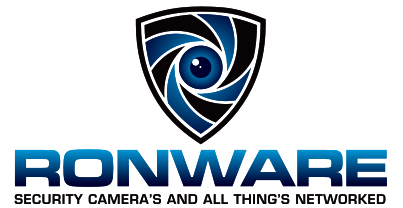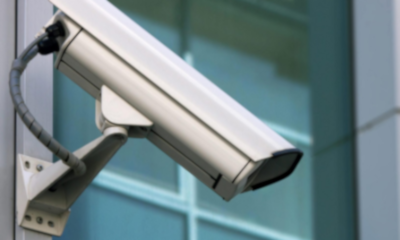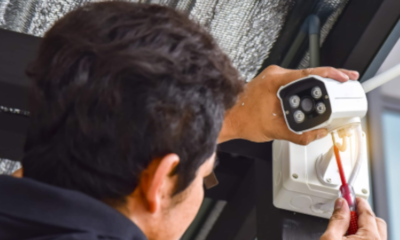

Call: 252-245-1014 Open
Monday-Friday 9AM–5PM
Saturday Closed
Sunday Closed



As any business owner knows, maintaining a secure workplace is critical to success. This means establishing security protocols and investing in technology that can help protect your business, employees, and customers. One such technology that has proven incredibly effective in securing commercial spaces is the security camera system.
Security cameras are a powerful tool for monitoring your business and reducing the risk of theft, vandalism, and other criminal activities. Here are just a few of the many advantages of security camera systems for businesses:
1. Deterrence
One of the most significant advantages of security camera systems is their ability to deter criminal activity. The mere presence of cameras can discourage potential criminals from targeting your business in the first place, as they know that they are being watched and recorded. This means that your business is less likely to be targeted by burglars, vandals, or other criminals. As a result, the risk of theft and other crimes is significantly reduced, which helps to protect your business, employees, and customers.
2. Crime Prevention
In addition to deterring criminal activity, security cameras also help to prevent crime from occurring in the first place. By monitoring your business premises around the clock, you can quickly detect any suspicious activity and take prompt action to prevent it from escalating into a more significant issue. This means that security cameras can help to prevent theft, vandalism, and other types of criminal activity that could negatively impact your business.
3. Evidence Gathering
Another significant advantage of security camera systems is their ability to gather evidence. In the event of a crime, cameras can provide valuable footage that can be used to identify and prosecute the perpetrators. This can be particularly useful in cases where the criminals are difficult to identify or track down, as the footage can be used to build a case against them. Additionally, footage can also be used to exonerate employees who may be falsely accused of wrongdoing, providing valuable protection for both staff and business owners.
4. Improved Productivity
Security cameras can also help to improve productivity in the workplace. By monitoring employee activity, you can identify any areas of inefficiency or waste and take prompt action to address them. This can help to streamline operations and boost productivity, which can have a significant positive impact on your bottom line.
5. Remote Monitoring
One of the biggest advantages of modern security camera systems is their ability to provide remote monitoring. This means that you can access live feeds from your cameras no matter where you are, allowing you to keep an eye on your business even when you are not there in person. This can be particularly useful for businesses with multiple locations or for business owners who are frequently away from the office.
6. Cost-Effective
Finally, security cameras are a cost-effective solution for securing your business. While the initial investment may be significant, the long-term benefits are undeniable. By reducing the risk of theft and other criminal activity, improving productivity, and providing valuable evidence in the event of a crime, security cameras can ultimately save your business money in the long run.
In conclusion, security camera systems are an essential component of any comprehensive business security plan. By deterring criminal activity, preventing crime, gathering evidence, improving productivity, offering remote monitoring, and providing cost-effective protection, they can help to establish a safe and secure environment for your business, employees, and customers. If you are looking to enhance the security and safety of your business, a security camera system is an investment well worth considering.

Security cameras can be an excellent tool for keeping your property safe, but where you put them is just as important as the fact that you have them. Proper placement of security cameras can make all the difference in the world when it comes to keeping your home or business safe.
When it comes to placement, there are a few things to consider. First, you need to figure out what you want to keep an eye on. What are the areas of your property that are most at risk or where you would be most likely to catch a potential intruder or problem? Common areas include entryways, garages, living or work spaces, and outdoor areas like patios or decks. Once you have a good idea of what you want to keep an eye on, you can begin to consider placement options.
One popular spot for security cameras is above entryways. Placing a camera above a front or back door can provide a clear view of anyone coming or going, and can often deter potential intruders from attempting to enter. Another popular spot is around garages, as these areas are typically the most common point of entry for burglars. Cameras in common spaces can also be helpful, as they can provide visibility into areas where valuables may be stored, or where employees or family members may gather.
When it comes to outdoor areas, there are a few specific considerations to keep in mind. First, you want to ensure that your camera is protected from the elements. Look for cameras that are weather-resistant, or that can be installed in protected enclosures. You also want to consider how far your camera can see in relation to the distance from the target area. Cameras with zoom will provide a better view of distant areas. Finally, consider placing cameras near key features of your outdoor spaces like pools or play areas, especially if you have children.
Ultimately, the placement of your security cameras will depend heavily on the layout of your property and the areas you’re most interested in keeping an eye on. It can be helpful to sketch a rough diagram of your property, including potential camera locations and the areas they cover. Be prepared to make adjustments as needed, as the placement of your cameras may change as you become more familiar with their capabilities and limitations.
In addition to placement, there are a few other factors to consider when it comes to security camera functionality. High quality is key, particularly when it comes to being able to see details clearly, even in low-light conditions. Many cameras offer night vision, which can be particularly helpful for outdoor spaces. You also want to ensure that the camera you choose is user-friendly and easy to access from a phone or computer. This will allow you to keep an eye on your property at any time, from anywhere.
When it comes to placement of security cameras, a little forethought and effort can make all the difference. Keep your cameras focused on high-risk areas, protect them from the elements, and ensure they are high-quality and accessible. With a little preparation and planning, your security cameras can provide invaluable peace of mind and protection.

Owning a home can be a wonderful experience but it also comes with potential risks that must be addressed. With crimes increasing each year and criminals becoming more sophisticated, homeowners need to take the proper actions to protect their property and themselves. One way to do this is by having security cameras in place.
Security cameras offer a variety of benefits to homeowners by providing a way to keep an eye on their property and deterring potential thieves. They also create an opportunity for homeowners to investigate any suspicious activity without having to investigate the incident themselves.
When it comes to security, cameras can be a great tool to have. With the advancement in technology, homeowners now have access to a wide range of surveillance cameras. This includes models that are wired directly into the home’s power system and those that use batteries. The wired system is preferred for maximum peace of mind and protection, as it is more reliable than a battery-powered camera.
Cameras can be installed both inside and outside of the home, making it easy to monitor activity. Depending on the camera, homeowners can also choose to install them in hard to reach places such as high walls or on rooftop vents. This can help provide a comprehensive view of the property and give an extra layer of protection.
Security cameras can be an invaluable tool to homeowners, especially if they live in an area that has seen an increase in crime. Having cameras in place can alert homeowners to any suspicious activity that occurs. This can help homeowners respond to situations faster and make sure the situation is addressed quickly.
In addition to alerting homeowners to suspicious activity, cameras can also help provide evidence of any crime that has taken place. Images taken from the camera can be used in court as evidence of a crime and can also help law enforcement to track down the person responsible for the crime.
Aside from the security benefit, cameras can also provide convenience. The recording of activities can be reviewed remotely from a laptop or smartphone. This can be useful when homeowners are away from their home and need to monitor different rooms or parts of their property.
Security cameras are an effective solution to protecting home and family, offering both deterrence and monitoring of activities. Homeowners should consider installing a security camera system to ensure their home remains protected and they can investigate any suspicious activity that takes place.

Security cameras are an essential tool for protecting people and property against theft, vandalism, and other crimes. With advances in camera technology, there are now many types of security cameras, each with their unique capabilities and features. In this article, we will discuss some of the most common types of security cameras.
1. Dome Cameras: Dome cameras are one of the most popular types of security cameras used today. They have a compact, dome-shaped design that makes them blend into their surroundings, making them perfect for indoor and outdoor surveillance. Dome cameras can be fixed, varifocal or with pan-tilt-zoom (PTZ) functionality. They are ideal for monitoring large areas and can be installed in places such as retail stores, offices, and schools.
2. Bullet Cameras: Bullet cameras are a widely-used type of security camera that is designed to look like a bullet or a lipstick case. They are often used for outdoor surveillance and come in a weatherproof housing. Bullet cameras are used in areas that require long-range and narrow-angle viewing, such as parking lots, roads, and airports.
3. PTZ Cameras: PTZ cameras offer pan, tilt, and zoom functionalities, allowing users to control the view direction and zoom in on a particular object or person. These are generally more expensive than other cameras, but they can cover more ground and give a more detailed view of any given area. PTZ cameras are used in places like parking lots, airports, and large commercial buildings.
4. IP Cameras: IP cameras use Internet Protocol (IP) technology to transmit digital signals over a network or the internet. They can be accessed remotely, which means that you can view live feeds or playback recorded footage from anywhere in the world. IP cameras are ideal for monitoring large buildings, and they are often used in casinos, schools, and hospitals.
5. Thermal Cameras: Thermal cameras are unique in that they detect heat instead of light, making them useful in situations where lighting is poor or nonexistent. For example, they are popular in monitoring wildlife or security monitoring in pitch-black environments. Thermal cameras help in detecting intruders and tracking their movements.
6. Wireless Security Cameras: Wireless security cameras work without the use of wires or cables, making them easier to install and relocate. These cameras function using Wi-Fi or Bluetooth technology that connects them to a central recording device, allowing users to view live footage remotely. Wireless cameras are suitable for monitoring small spaces like homes, small offices, or shops.
7. POE Cameras: Poe cameras are a popular choice for businesses and homeowners who need a reliable and convenient way to monitor their properties. Poe cameras, or Power over Ethernet cameras, are a type of IP (Internet Protocol) camera that receives power and data through a single Ethernet cable. This simplifies installation and reduces the cost of powering and networking multiple cameras. Poe cameras typically offer advanced features, such as high-definition video, night vision, and remote access through a mobile app or web interface. Whether you need to monitor your property for security purposes or just want to keep an eye on things, Poe cameras offer a reliable and convenient solution.
In conclusion, there are many different types of security cameras available, each with its unique capabilities and features. Before purchasing a security camera, it is essential to understand the different types available and the situations in which they are useful. We hope that this article has given you a better understanding of the various types of security cameras available and which one would be right for your security surveillance needs.
All content copyright © 2023 Ronware Security Cams
Web design by www.WebDesignAssociates.net